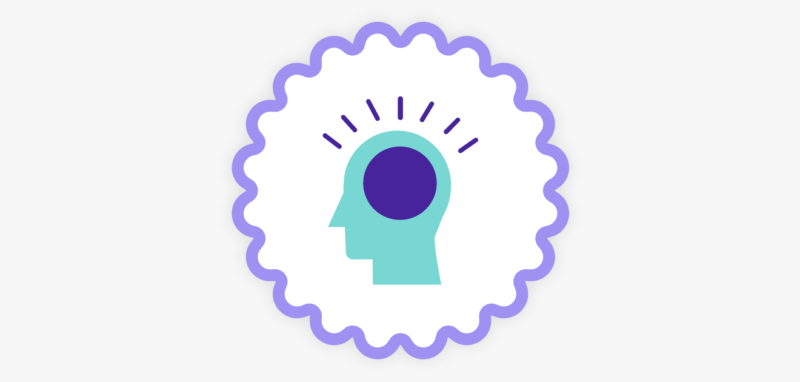Tech Skill
Docker Skills
All about Docker
Docker is a leading containerization platform revolutionizing the way software is developed, deployed, and managed. With Docker, developers can package their applications and dependencies into lightweight, portable containers that can run consistently across any environment, from development to production.
Docker provides a standardized way to build, ship, and run applications, enabling organizations to streamline their development workflows, improve collaboration between development and operations teams, and accelerate software delivery to market.
What to use Docker for
Here are some key applications of Docker:
- Containerization: Docker is used for containerizing applications, enabling developers to package their applications and dependencies into lightweight, portable containers that can run consistently across any environment, from development to production.
- Microservices: Docker is used for building and deploying microservices-based architectures, enabling developers to decompose monolithic applications into smaller, independent services that can be deployed and scaled independently in containerized environments.
- DevOps and Continuous Integration/Continuous Deployment (CI/CD): Docker is used for implementing DevOps practices and CI/CD pipelines, enabling organizations to automate the building, testing, and deployment of applications using containerized environments, and to accelerate the delivery of software to market.
- Cloud-Native Development: Docker is used for developing cloud-native applications, enabling developers to leverage containerization, orchestration, and cloud services to build scalable, resilient, and cost-effective applications that can run on any cloud platform.
- Hybrid and Multi-Cloud Deployments: Docker is used for deploying applications in hybrid and multi-cloud environments, enabling organizations to run their applications seamlessly across on-premises data centers, public clouds, and private clouds using containerization and container orchestration technologies.
A Docker developer is a software developer who specializes in building, deploying, and managing applications using Docker containers.
Here’s what it means to be a Docker developer:
- Proficiency in Containerization: Docker developers are proficient in containerization concepts and technologies, including Docker containers, images, registries, volumes, and networking, enabling them to package and deploy applications using Docker’s containerization platform.
- Familiarity with Docker Ecosystem: Docker developers are familiar with the Docker ecosystem, including Docker Compose, Docker Swarm, and Docker Hub, and understand how to use these tools and services to build, deploy, and manage containerized applications in production environments.
- Experience with DevOps Practices: Docker developers have experience with DevOps practices and tools, including version control, continuous integration, continuous deployment, infrastructure as code, and monitoring and logging, enabling them to automate the building, testing, and deployment of Dockerized applications using CI/CD pipelines and infrastructure automation tools.
- Understanding of Container Orchestration: Docker developers understand container orchestration technologies, including Kubernetes, Docker Swarm, and Amazon ECS, and understand how to deploy and manage containerized applications at scale using container orchestration platforms.
- Cloud-Native Development: Docker developers need to have a deep understanding of cloud-native development principles and practices. This includes knowledge of cloud computing concepts, infrastructure as code (IaC), serverless computing, and microservices architectures. They should be able to leverage cloud services and platforms to build and deploy containerized applications that are scalable, resilient, and cost-effective in cloud environments.
- CI/CD Pipelines: Docker developers should be experienced in setting up and maintaining continuous integration and continuous deployment (CI/CD) pipelines for Dockerized applications. They should be familiar with CI/CD tools and practices, including version control, automated testing, build automation, and deployment automation. They should be able to automate the entire software delivery process, from code commit to production deployment, to ensure fast and reliable delivery of changes to production environments.
- Container Security: With the increasing adoption of containers in production environments, Docker developers need to prioritize container security. They should be knowledgeable about container security best practices, including image scanning, vulnerability management, access control, and runtime protection. They should be able to implement security measures and policies to protect containerized applications from security threats and compliance violations.
- Monitoring and Logging: Docker developers should be proficient in monitoring and logging containerized applications to ensure performance, availability, and reliability. They should be familiar with monitoring tools and techniques for collecting metrics, logs, and events from containers and orchestrators. They should be able to set up monitoring dashboards, alerts, and automated responses to proactively identify and resolve issues in containerized environments.
Docker resources
Check out our resources to continue sharpening your Docker skills.
Hired profiles help developers showcase their top tech skills
After passing Hired skills assessments, candidates may showcase their skills to employers. They can opt to present an ‘Assessments’ badge on their profile. Candidates may take various assessments including Programming Skills, Full Stack, Backend, Frontend, iOS, Android, Debugging, DevOps Generalist, and DevOps AWS.
Find Docker jobs on Hired.
Hiring Docker developers can bring numerous benefits to your organization:
- Efficiency and Productivity: Docker developers enable you to streamline your development workflows, improve collaboration between development and operations teams, and accelerate the delivery of software to market, thanks to Docker’s standardized way of building, shipping, and running applications in containers.
- Scalability and Flexibility: Docker developers help you build scalable and flexible applications that can run consistently across any environment, from development to production, and can be easily deployed and scaled using container orchestration technologies such as Kubernetes, Docker Swarm, and Amazon ECS.
- Cost Savings and Resource Optimization: Docker developers help you optimize resource utilization, reduce infrastructure costs, and increase operational efficiency by leveraging containerization and container orchestration technologies to deploy and manage applications more efficiently in production environments.
- Innovation and Agility: Docker developers empower you to innovate and iterate quickly, thanks to Docker’s lightweight and portable containers that enable you to test ideas, experiment with new technologies, and deliver value to customers faster and more frequently.
Looking for candidates skilled in Docker? Technical assessments are a multi-pronged solution. They allow you to streamline the hiring process and reduce bias with tech skill-focused benchmarks.
Hired Assessments offers a library of hundreds of questions and customizable coding challenge campaigns tailored to technical preferences. Centralize and standardize your evaluation process as you surface top talent with specific, hard-to-find skills.
See how Mastercard and Axon used Hired Assessments to vet top candidates.
Resources you’ll love

4 Offer Stage Strategies to Win Top Candidates
Getting a candidate to the offer stage You’ve run a seamless process. Your hiring manager and...

How to Manage Inbound Applications & Rethink Talent Sourcing Analytics: Tips for Recruiters
Experiencing an overwhelming volume of inbound applications? In a new episode of Talk Talent to...

AI Leads to More Human-Centric Recruitment & Hiring (What!?)
Leading the way to streamlined & people-focused processes AI is more than just an ongoing...
